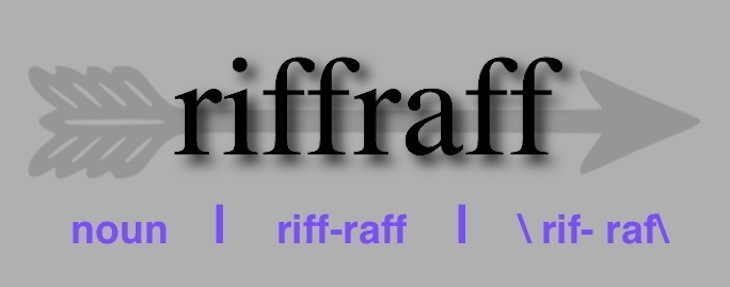Riff Raff: The dumb cycle
by March 16, 2022 9:59 am 1,969 views

The television ad for an Arkansas GOP candidate for a federal office blasts, “Babies, Borders, Bullets.” The complex is oversimplified because, you know, don’t think; be enraged. Be alarmed. And with alarm and rage, go vote. Or send money. Both, preferably. But don’t think.
Just so you, Kind Reader, don’t consider this a slam on the political right, the left also is guilty of issue oversimplification that makes healthy dialogue damn near impossible. Defund the police, for example.
There was a time when political advertising attempted to persuade with policy, and, further on the unbelievability scale, the advertising was focused on state and local issues of real need and importance. American politics has always had its demagogues, but long gone are the days when a Democrat like Dale Bumpers or a Republican like John Paul Hammerschmidt would campaign on their ability to compromise with members of the other party to get things done.
We’ve dumbed down our politics to the point we keep going down dumb directions. With dumb directions, there is no path, for example, to practical immigration reform and border security solutions. Ditto for gun laws that best ensure the safety of children in schools. And health care, where the private sector alone is not the answer, but neither is wholesale government intervention.
And energy policy. It makes sense to eventually turn away from fossil fuels, but maybe let’s talk about a reasonable path toward such a goal before capping all wells. “Drill, baby, drill,” “no nukes!” and other bumpersticker inanity aren’t part of any real solution. Politicization of gas prices is a perfect example of what happens when talking points replace responsible consideration of the complex interchange of energy exploration, distribution, subsidies, refinery regulations, regional market forces, and a Harry Potter-sized series of other factors.
And then there is politics about us and how we got here. Angry politics from the left and the right blocks honest and hard discussions about the many twists, turns, tragedies, and triumphs of U.S. history and how it should be taught. Woe be to any school board member in this environment interested in an honest, rational approach to teaching a more accurate American story.
We’re being dumb downed because political leaders seeking to gain or retain power need folks to vote against their own self interests. Divisive politics requires ignorance. Ignorance results in fear and anger. Fear and anger leads to more divisive politics. The cycle rewards shrill partisans and punishes sincere pragmatists. Pew Research shows us the results this dumb cycle.
“Democrats and Republicans are farther apart ideologically today than at any time in the past 50 years,” the non-profit research group noted in a March 10 report on its research. “Both parties have grown more ideologically cohesive. There are now only about two dozen moderate Democrats and Republicans left on Capitol Hill, versus more than 160 in 1971-72.”
The report suggests that since the 1970s, “Democrats on average have become somewhat more liberal, while Republicans on average have become much more conservative.” That statement rings true when considering what Arkansas Republicans are saying about each other in the run up to the May 24 primary election.
The area in the political middle where we find solutions that, while often not perfect, help improve the world around us, is damn near fictional.
“As Democrats have grown more liberal over time and Republicans much more conservative, the ‘middle’ – where moderate-to-liberal Republicans could sometimes find common ground with moderate-to-conservative Democrats on contentious issues – has vanished,” Pew notes.
“Vanished.” Vanished is a nuanced way to say dumb government is what we get – and deserve – when we respond Pavlovian to the likes of “Babies, Borders, Bullets.”
It’s not likely to improve. A Jan. 5 Pew Research note finds that those making the most noise are those who want us to keep walking like zombies past the practical pastures of common ground.
“U.S. adults who fall on either end of the ideological spectrum are more active than other Americans across several measures of political engagement, from voting to posting about politics on social media to donating to campaigns,” the report noted.
To be sure, there is some irony in a short essay that seeks to push back against simplifying the complex. But the hope is you will be more aware that facts are rare with those who peddle fear, alarmists often want to suppress analysis, and rage leaves little room for reason.
